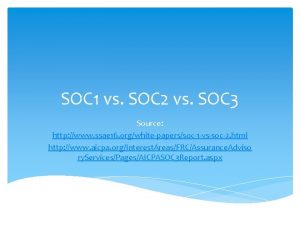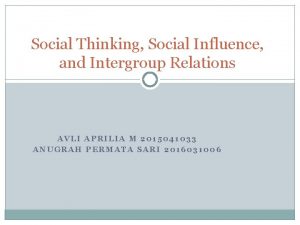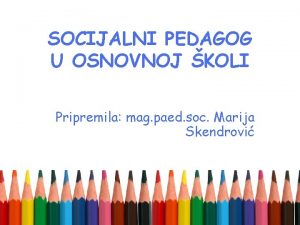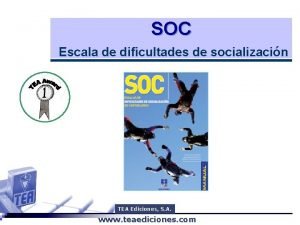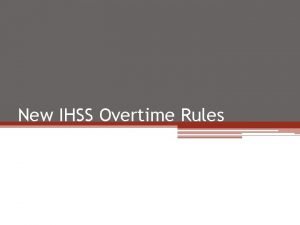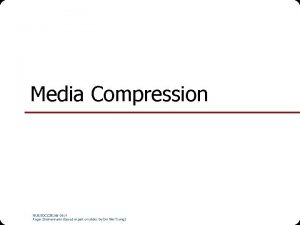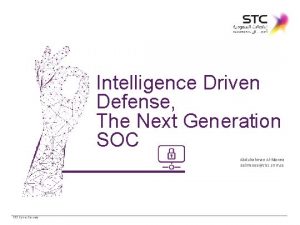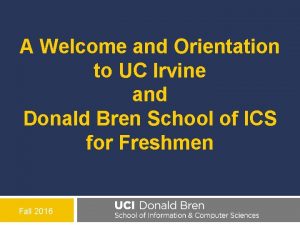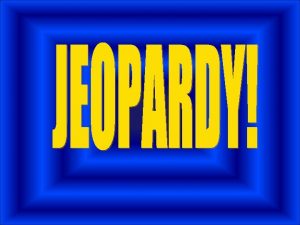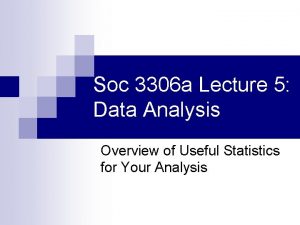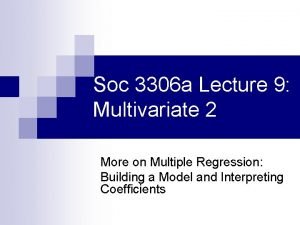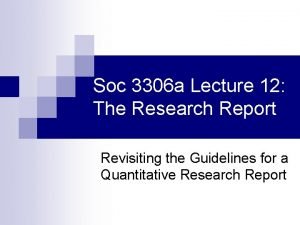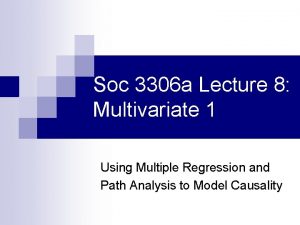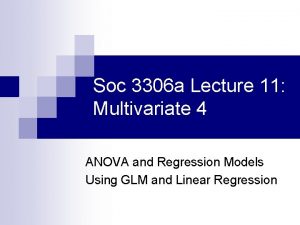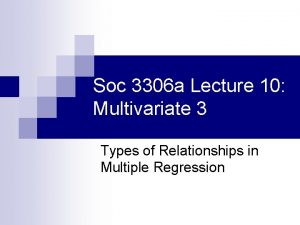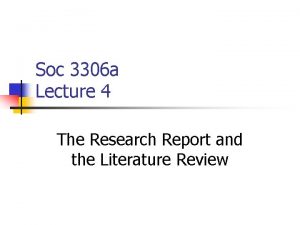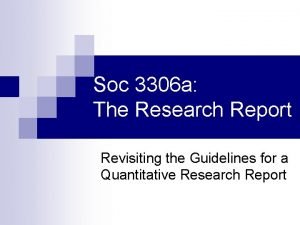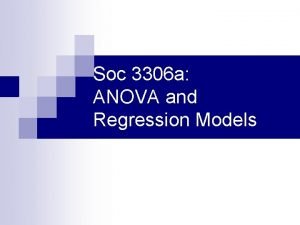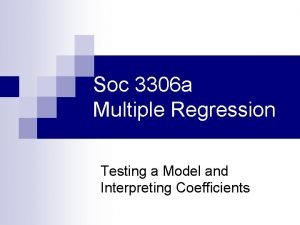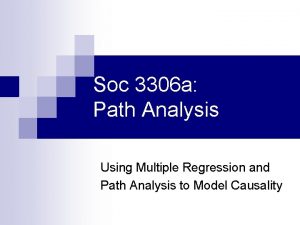Soc 3306 a Lecture 2 Overview of Social

















- Slides: 17

Soc 3306 a Lecture 2 Overview of Social Enquiry

Choices Facing the Researcher n n n What is the problem to be investigated? What questions should be answered? Which strategy will be used? What will the researcher’s stance be? What paradigm will direct the investigation?

The Problem n n The fundamental first choice A statement of what will be studied and how the area will be delimited

The Research Question n n A statement of what will actually be investigated Three main types: n n What = description Why = understanding, explanation How = intervention, problem solving ‘What” questions usually come first, but a research project will usually encompass ‘why’ and ‘how’ questions too

Research Strategies (from Blaikie, 2007)

Research Strategies (cont. ) n Underlying logic of the research inquiry n Inductive: linear, bottom up process n Deductive: also linear but top down n Retroductive: spiral, more complex, top down, moves from model to real world n Abductive: complex bottom up process from real world to generalizations and theory

The Researcher’s Stance n n Other choices to be made in research: Will the researcher function as n n An outsider or insider An expert or a learner? Will research be done on, for, or with people? What are the implications of these choices?

Research Paradigms and their Ontological and Epistemological Assumptions n n n Paradigm is theoretical framework within which the research takes place Paradigms differ by their ontology and epistemology Each paradigm has a different way of connecting ideas (concepts and theory) to every day social experience and to social reality (the material world)

Ontological Assumptions n n What is the nature of social reality? Major ontological (philosophical) assumptions tend vary on a continuum from extreme realism to idealism (relativism)

Epistemological Assumptions n n n How do we gain knowledge of the world around us? What can be known? What type of knowledge is legitimate? n Empiricism: use the senses to “know” the world n Rationalism: common thought structures shape knowledge n Falsificationism: cautious search for tentative truth n Neo-realism: search for underlying causal structures n Constructionism: reality socially constructed n Conventionalism: reality a human creation

Links between Ontology and Epistemology Each epistemology is linked to certain ontological assumptions… n n n Empiricism, Rationalism, Falsificationism, and Neorealism are linked to varying degrees of ontological realism Constructionism is tied to idealism (relativism) Conventionalism an alternative epistemology that tries to overcome weaknesses of above n Recognition that reality is a social construction but that it is possible to use empirical methods to search for commonalities among structures.

What is a paradigm? n n n Each paradigm is guided by specific ontology and epistemology, and has its own “rules” A paradigm is a fundamental image of the knowledge and subject matter within a science Includes theoretical and methodological “rules” for working within that particular paradigm Sociology is a multi-paradigmic science Theoretical traditions include structuralfunctionalist theory, conflict theory, social exchange theory, symbolic interactionist theory and more…

A paradigm…. n n n is the broadest unit of consensus within a science serves to differentiate one scientific community from another defines n n what should be studied what questions should be asked how they should be asked what rules should be followed in interpreting the answers obtained

Relationship between theory and research n n n The relationship is defined by the paradigm according to its theoretical underpinning The theory tells us what "social facts" are worthy of social research Theory enables organization of research findings and conclusions Theory helps determine gaps in scientific knowledge and provides suggestions for further research investigation Theory makes it possible to impute causality to the relationships between concepts

Furthermore… n n n Theory can extend empirical generalizations Theory creates confidence in the value of new evidence and its ability to extend knowledge in the area Theory provides a rationale for the research and grounds for future prediction

Major paradigms and theoretical traditions in sociology n Positivism n n Interpretivism n n n Symbolic interactionism Social exchange Critical n n Structural functionalism Conflict theory Realism n Postmodernism

Questions: n What constitutes knowledge? n Is it possible to find social “truth”? n If so, how can “truth” be discovered?
 Soc2 vs soc3
Soc2 vs soc3 01:640:244 lecture notes - lecture 15: plat, idah, farad
01:640:244 lecture notes - lecture 15: plat, idah, farad Social thinking adalah
Social thinking adalah Social thinking social influence social relations
Social thinking social influence social relations Workday soc 1 report 2020
Workday soc 1 report 2020 Czss zagreb
Czss zagreb Mag paed soc
Mag paed soc Escala soc
Escala soc Siov soc
Siov soc Soc 2255
Soc 2255 Soc cissp
Soc cissp Nus soc ffmpeg
Nus soc ffmpeg Intelligence driven defense
Intelligence driven defense Soc charter template
Soc charter template Raspberry pi gpio4
Raspberry pi gpio4 Dss soc
Dss soc Ics catalogue uci
Ics catalogue uci What did greasers wear in the 1960's
What did greasers wear in the 1960's
